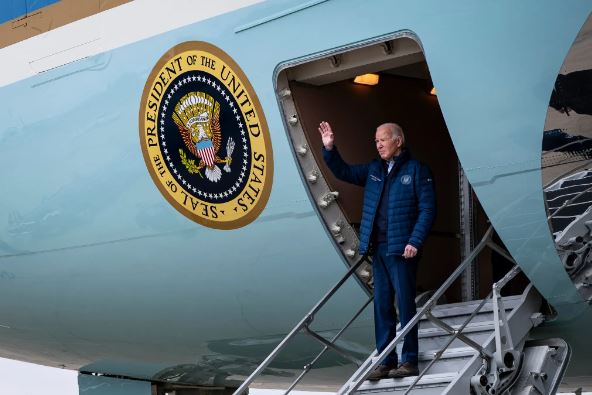President Biden’s tenure has been fraught with challenges, particularly reflected in his lower approval ratings compared to his predecessors. However, amidst the storm of public opinion, a ray of light shines through in a recent survey of historians, positioning Biden favorably in the annals of American presidential history.
Released over Presidents’ Day weekend, the poll ranks Biden as the 14th-best president in American history, placing him ahead of notable figures such as Woodrow Wilson, Ronald Reagan, and Ulysses S. Grant. While this may not secure Biden a spot on Mount Rushmore, it’s a significant distinction, especially considering that his predecessor, Donald J. Trump, ranks at the bottom as the worst president ever.
Biden’s relatively high standing in the survey owes in part to his role in succeeding Trump. Historians credit him with restoring a sense of traditional presidential leadership and thwarting Trump’s bid for reelection. While Biden’s presidency is still unfolding, his efforts to navigate the end of the Covid-19 pandemic, rebuild infrastructure, and lead an international coalition against Russian aggression are acknowledged as notable achievements.
Justin Vaughn and Brandon Rottinghaus, the professors behind the survey, underscore Biden’s pivotal role in rescuing the presidency from the tumult of the Trump era. They highlight Biden’s return to a more conventional style of governance and his proactive approach to safeguarding the Oval Office from his predecessor’s influence.
Even among Republican historians, Trump’s legacy fares poorly. Despite claims to a historical legacy, Trump lags behind even presidents associated with major crises like the Civil War or significant policy failures. His divisive tenure has left a lasting mark, with his ranking plummeting even among his own party affiliates.
Assessing the legacies of modern-day presidents is complex and subject to shifting perspectives influenced by contemporary politics and societal values. Presidents like Barack Obama and Ulysses S. Grant have seen their rankings fluctuate over time, influenced by evolving views on racial justice and historical interpretations.
For instance, Obama’s ascent in the rankings reflects his significance as the nation’s first Black president, while Grant’s reputation has been reassessed in light of his efforts against the Ku Klux Klan. Conversely, scrutiny over Andrew Jackson’s treatment of Native Americans and Woodrow Wilson’s racist policies has led to their decline in historical standing.
Despite ideological differences, historians largely agree on the rankings of iconic figures like Abraham Lincoln, Franklin D. Roosevelt, and George Washington. However, modern presidents often evoke more partisan divides, with rankings varying significantly among Republican and Democratic scholars.
Reagan, George H.W. Bush, Obama, and Biden elicit differing assessments based on party affiliation, showcasing the polarization in contemporary politics. George W. Bush’s presidency also garners mixed reviews, highlighting the complexities of assessing recent administrations.
Interestingly, Bill Clinton emerges as a figure of relative consensus, with minimal disparity in rankings between Republican and Democratic scholars. This convergence suggests a nuanced reevaluation of Clinton’s legacy in the context of the #MeToo movement and evolving political dynamics.
The survey, based on responses from 154 scholars across the country, provides valuable insights into the evolving perceptions of presidential legacies. As the Biden administration continues to navigate challenges and shape its legacy, its place in history remains subject to interpretation and debate among historians and the broader public alike.

